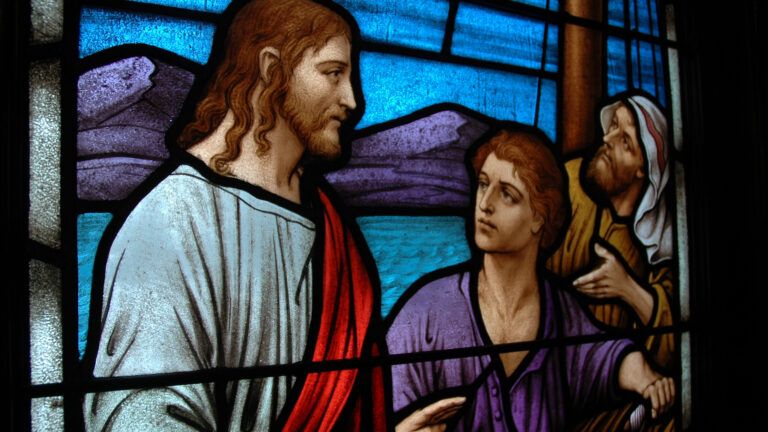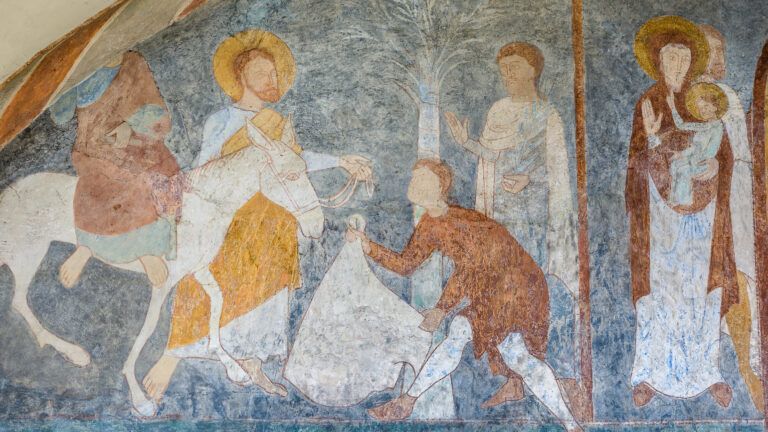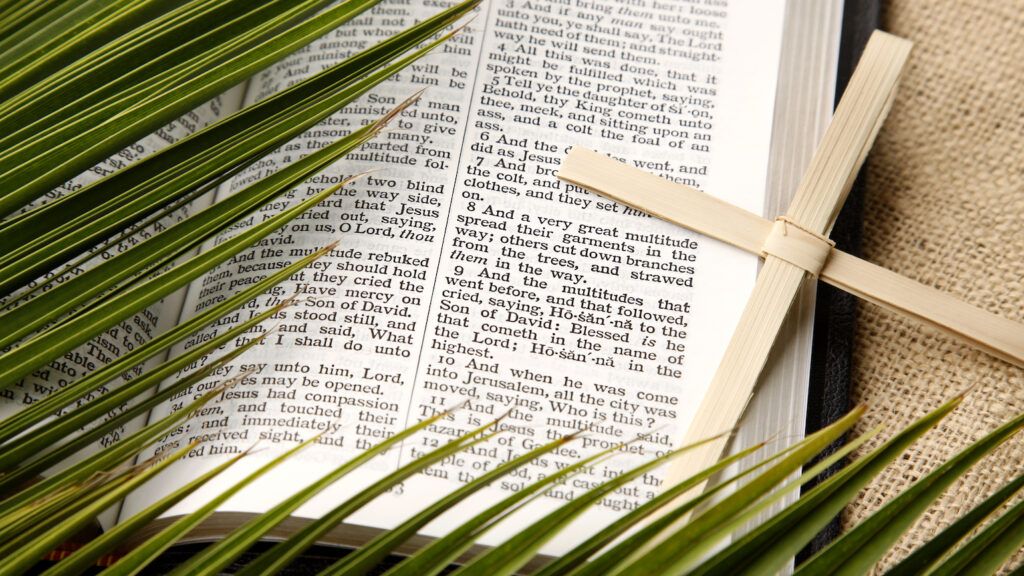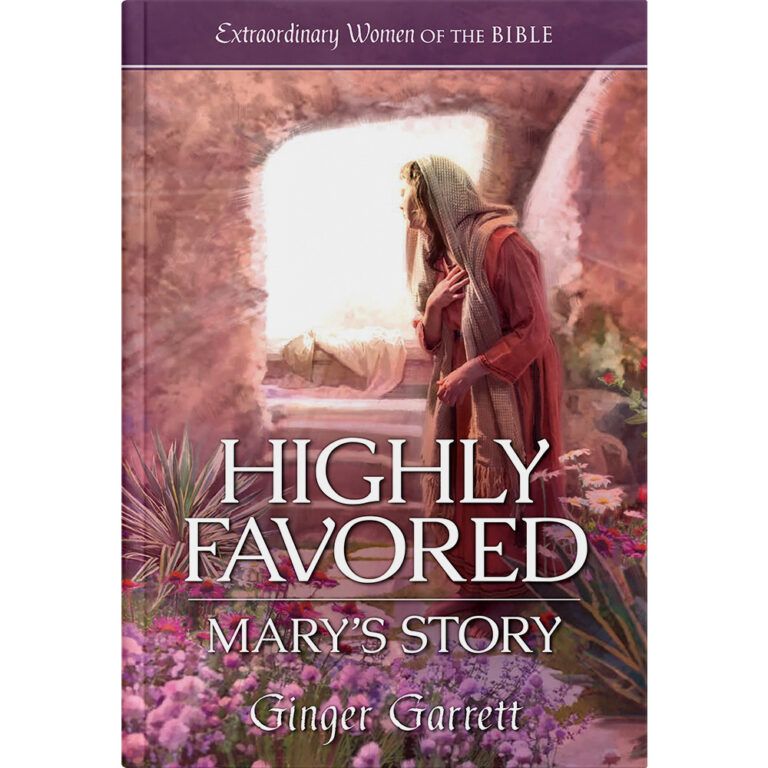To followers of Jesus, Easter is the most important day of the year…or should be. It’s the day we celebrate the central event of history, the moment when Jesus rose from the dead to make eternal life possible for human souls like you and me. What if we truly prepared for Easter this year? The Lent season is coming to an end. Now is the perfect time to focus on rebirth and new beginnings. The first Palm Sunday in the Bible and Palm Sunday Scriptures can guide us in approaching the coming resurrection celebration.
READ MORE: What is a Palm Sunday Parade?
Palm Sunday in the Bible
What if we prepared ourselves and our souls in meaningful ways, ways that can be found in the Biblical accounts of the days leading up to the first Resurrection Sunday? Here is what the first Palm Sunday in the Bible can teach us:

1. Luke 19: 29-31—Do What Jesus Says
Luke the historian records the first Palm Sunday, a week before the resurrection:
As [Jesus] approached Bethphage and Bethany at the hill called the Mount of Olives, he sent two of his disciples, saying to them, “Go to the village ahead of you, and as you enter it, you will find a colt tied there, which no one has ever ridden. Untie it and bring it here. If anyone asks you, ‘Why are you untying it?’ tell him, ‘The Lord needs it’” (Luke 19: 29-31, NIV).
Jesus sent two of His disciples on a strange little mission. We don’t know which two disciples went, nor do we know what they talked about on the way. But it wouldn’t be surprising if they wondered, “You really think we should just untie the colt and take it?” “You think the Master knows the owner?” “You think this is a test of some kind?” “What if somebody takes a swing at us?”
You see, we typically read the Bible like a play, as if all the characters knew the script. But they didn’t. And yet, whoever they were, those disciples did what Jesus said. And their simple obedience brought glory to God. The Bible says that shortly after they completed their mission, “the whole crowd of disciples began joyfully to praise God in loud voices” (Luke 19:37, NIV).
That’s a good model for the week before Easter. We could do no better than to follow the example of those two unnamed disciples. Your obedience probably won’t involve a donkey. Only you and God know what it WILL involve. Is He calling you to repentance and faith in Him? Is He telling you to forgive someone? To help someone? To give something up? To say yes to something? To say no to something?
Whatever it is, you may be surprised—like the disciples Jesus sent to Bethphage—at how your simple act of obedience will bring glory to God.
READ MORE: 5 Palm Sunday Devotions

2. Luke 19:41-44—Feel What Jesus Feels
Another part of the first Palm Sunday in the Bible clues us in to a second way to prepare for Easter:
As [Jesus] approached Jerusalem and saw the city, he wept over it and said, “If you, even you, had only known on this day what would bring you peace—but now it is hidden from your eyes. The days will come upon you when your enemies will build an embankment against you and encircle you and hem you in on every side…because you did not recognize the time of God’s coming to you” (Luke 19:41-44, NIV).
We tend to forget that this event was even part of the Triumphal Entry. We get caught up in the crowd, the shouts, the emotion, and excitement—while Jesus’ tears go unnoticed.
But apparently the crowds and the disciples didn’t pay much attention to His tears, either. Matthew didn’t record it. Mark didn’t mention it. Luke is the only writer to record this event.
But don’t let it pass you by today.
The Greek word Luke used to say Jesus “wept” signifies more than tears; it suggests the kind of soul-wracking, gut-wrenching sobbing a person does at the tomb of a friend. It is the word used of Mary’s sobs at the tomb of her brother Lazarus, of Mary Magdalene’s sobs at Jesus’ tomb, and of Peter’s “bitter” weeping after he denied Jesus and heard the cock crow.
Jesus wept violently for the people of Jerusalem.
Not for Himself. Not for the cross that awaited Him. But for the fate that would come upon that city, when Roman armies would invade in 70 A.D., raze the city, destroy its glorious temple, and brutalize its rebellious people. Everyone else was having a party, and Jesus was filled with compassion for the lost sheep of Israel who didn’t even know their own sad condition.
That, too, is a good model. We could do no better than to prepare for Resurrection Sunday by letting ourselves feel what Jesus feels for those who are hurting, wandering, searching—those who don’t even know they’re searching. For lost sheep, many of whom don’t even know they’re lost sheep.

3. Matthew 21:10-11—Tell Who Jesus Is
Matthew’s Gospel concludes the story:
When Jesus entered Jerusalem, the whole city was stirred and asked, “Who is this?” The crowds answered, “This is Jesus, the prophet from Nazareth in Galilee” (Matthew 21:10-11, NIV).
When Matthew reports that the city was “stirred,” he uses the word, seio, from which we get our word “seismic.” It’s the same word he used later in his Gospel when he said that at the moment Jesus died on the cross, “The earth shook and the rocks split” (Matthew 27:51, NIV).
The city was stirred as an earthquake “stirs” the ground.
Isn’t that what needs to happen in your community this Easter: to be stirred? Isn’t that what your community is longing for? Waiting for? To see if the people who fill the churches and sing Jesus’ praises really know Him? To fulfill the promise of the first Palm Sunday in the Bible?
To prepare for Resurrection Sunday, tell who Jesus is. Find ways to share with friends, neighbors, family members, classmates, coworkers—anyone for whom we can feel what Jesus feels—the news that we proclaim on Easter Sunday, in the age-old confession of the church: “He is risen, he is risen indeed!”
More Palm Sunday Scripture
Use these 12 more Palm Sunday Scriptures to kick off your faith journey through Holy Week.

Reading Bible verses that get to the very heart of Palm Sunday can help us feel more connected to the biblical story. Reflect on this Scripture as you pray or meditate on Palm Sunday, whether you are doing it alone or with friends and family. In addition to thinking about the original story of Jesus’ arrival to Jerusalem, share what these verses mean to you in your life right now.
- The next day the great crowd that had come for the festival heard that Jesus was on his way to Jerusalem. They took palm branches and went out to meet him, shouting, “Hosanna! Blessed is he who comes in the name of the Lord! Blessed is the king of Israel!” —John 12:12-13
- Be strong and take heart, all you who hope in the Lord. —Psalm 31:24
- For God so loved the world that he gave his one and only Son, that whoever believes in him shall not perish but have eternal life. —John 3:16
- When he came near the place where the road goes down the Mount of Olives, the whole crowd of disciples began joyfully to praise God in loud voices for all the miracles they had seen: “Blessed is the king who comes in the name of the Lord! Peace in heaven and glory in the highest!” —Luke 19:37-38
- Hatred stirs up conflict, but love covers over all wrongs. —Proverbs 10:12
- Blessed is he who comes in the name of the Lord. From the house of the Lord we bless you. The Lord is God, and he has made his light shine on us. —Psalms 118:26-27
- All the believers were one in heart and mind. No one claimed that any of their possessions was their own, but they shared everything they had. With great power the apostles continued to testify to the resurrection of the Lord Jesus. And God’s grace was so powerfully at work in them all that there were no needy persons among them. —Act 4:32-34
- We love because He first loved us. —1 John 4:19
- The righteous will flourish like a palm tree, they will grow like a cedar of Lebanon; planted in the house of the Lord, they will flourish in the courts of our God. —Psalm 92:12-13
- But God demonstrates his own love for us in this: While we were still sinners, Christ died for us. —Romans 5:8
- Then Jesus told them, “You are going to have the light just a little while longer. Walk while you have the light, before darkness overtakes you. Whoever walks in the dark does not know where they are going. Believe in the light while you have the light, so that you may become children of light.” —John 12:35-36
- You are my God, and I will praise you; you are my God, and I will exalt you. Give thanks to the Lord, for he is good; his love endures forever. —Psalm 118:28-29
READ MORE ABOUT PALM SUNDAY AND HOLY WEEK:






